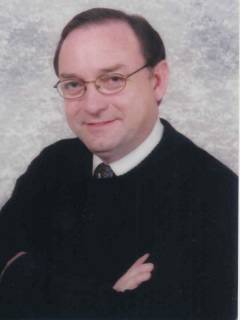Luke, The Power of Applied Talents
The third Gospel writer hides behind his historical account saying nothing about himself in the telling. His formal training and occupation is revealed in Paul’s letter to the Colossians. Luke is identified as the “beloved physician.” Three times Paul refers to Luke (Colossians 4:14; 2 Timothy 4:11; and Philemon 1:24). It is obvious that he was a traveling companion to the apostle Paul, and an eyewitness historian from his writing in the book of Acts.
Luke states his purpose in writing in the first verses of each of his books. In the Gospel of Luke he addresses his narration to an unknown man named Theophilus, “It seemed good to me also, having had perfect understanding of all things from the very first, to write to you an orderly account, most excellent Theophilus, that you may know the certainty of those things in which you were instructed” (Luke 1:3-4). In the introduction to Acts he continues his narrative, “The former account I made, O Theophilus, of all that Jesus began both to do and teach, until the day in which He was taken up, after He through the Holy Spirit had given commandments to the apostles whom He had chosen” (Acts 1:1-3).
Luke was not one of the twelve apostles. Nevertheless, he was a faithful disciple, a traveling missionary, a diligent scholar, and a faithful historian. We know nothing about his conversion or call. We don’t know the circumstances that led him to leave his medical practice to become the roving journalist, the devoted companion to accompany Paul on his missionary trips. He wrote in the first person as he told of sailing journeys from Troas to Philippi and numerous other ports between Italy and Israel.
Somewhere Luke was challenged by the message of Jesus. Somewhere he came to a passionate faith and developed devoted discipleship. He applied his training and scholarship to his new found faith. The physician became a writer. The doctor became the first church historian. Forsaking his comfortable career, Luke documented a first hand account of the early days of the church. He applied his talents to what he saw as the greatest need that he could fill.
In our pursuit of Christ we are often given gifts beyond our training, abilities greater than our education. It is the principle of diversified talents, applying an aptitude for another vocation to the present opportunity. You can become more than you planned to be. You can use the giftedness God has blessed you with to expand your ministry and embrace new opportunities.
Subscribe to:
Post Comments (Atom)

No comments:
Post a Comment